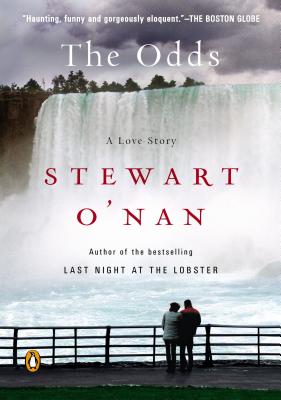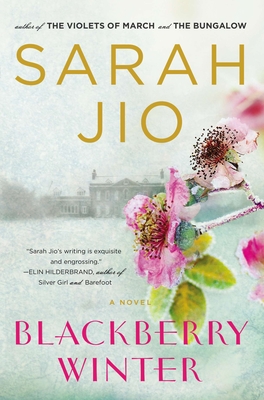The author of The Sharper Your Knife tells the inspiring story of how she helped nine others find their inner cook
After graduating from Le Cordon Bleu in Paris, writer Kathleen Flinn returned with no idea what to do next, until one day at a supermarket she watched a woman loading her cart with ultraprocessed foods. Flinn's "chefternal" instinct kicked in: she persuaded the stranger to reload with fresh foods, offering her simple recipes for healthy, easy meals.
The Kitchen Counter Cooking School includes practical, healthy tips that boost readers' culinary self-confidence, and strategies to get the most from their grocery dollar, and simple recipes that get readers cooking.
Jackie agrees, saying:
"I loved this book. At first I was afraid it was going to be condescending since the author is a Cordon Bleu trained chef. I couldn't have been more wrong. This was actually one of the most inspiring books I've read in a very long time.
The idea for this book started when Flinn was grocery shopping and noticed the truly horrible, processed, non-food food in a stranger's cart. She started up a conversation with the woman and ended up taking her around the store to get the "real" version of all the boxed stuff she had in her basket. The biggest problem is that the woman didn't know how to cook from scratch. When she thought about it, she realized that many folks are a generation or two away from that sort of cooking, and are unhealthy as a result.
So Flinn decides to do a research experiment, collecting 9 volunteers to attend a once weekly cooking class. But she first visits everyone's home, taking inventory of their cupboards and having them make a "typical lunch", as well as interviews these women to find out that their frustrations are about cooking. She then shapes classes around the several common problems they have, and teaches with a patience and grace, bringing these women along on a journey that literally changes each of their lives. The basics of the lessons as well as the recipes are in the book, and I could not resist heading for the kitchen to try many of them out. I learned so much from this book, and I am happily carrying it's inspiration forward. Do yourself a favor--read this book."
Stewart O'Nan's thirteenth novel is another wildly original, bittersweet gem like his celebrated Last Night at the Lobster.
Valentine's weekend, Art and Marion Fowler flee their Cleveland suburb for Niagara Falls, desperate to recoup their losses. Jobless, with their home approaching foreclosure and their marriage on the brink of collapse, Art and Marion liquidate their savings account and book a bridal suite at the Falls' ritziest casino for a second honeymoon. While they sightsee like tourists during the day, at night they risk it all at the roulette wheel to fix their finances-and save their marriage.
A tender yet honest exploration of faith, forgiveness and last chances, The Odds is a reminder that love, like life, is always a gamble.
After graduating from Le Cordon Bleu in Paris, writer Kathleen Flinn returned with no idea what to do next, until one day at a supermarket she watched a woman loading her cart with ultraprocessed foods. Flinn's "chefternal" instinct kicked in: she persuaded the stranger to reload with fresh foods, offering her simple recipes for healthy, easy meals.
The Kitchen Counter Cooking School includes practical, healthy tips that boost readers' culinary self-confidence, and strategies to get the most from their grocery dollar, and simple recipes that get readers cooking.
Jackie agrees, saying:
"I loved this book. At first I was afraid it was going to be condescending since the author is a Cordon Bleu trained chef. I couldn't have been more wrong. This was actually one of the most inspiring books I've read in a very long time.
The idea for this book started when Flinn was grocery shopping and noticed the truly horrible, processed, non-food food in a stranger's cart. She started up a conversation with the woman and ended up taking her around the store to get the "real" version of all the boxed stuff she had in her basket. The biggest problem is that the woman didn't know how to cook from scratch. When she thought about it, she realized that many folks are a generation or two away from that sort of cooking, and are unhealthy as a result.
So Flinn decides to do a research experiment, collecting 9 volunteers to attend a once weekly cooking class. But she first visits everyone's home, taking inventory of their cupboards and having them make a "typical lunch", as well as interviews these women to find out that their frustrations are about cooking. She then shapes classes around the several common problems they have, and teaches with a patience and grace, bringing these women along on a journey that literally changes each of their lives. The basics of the lessons as well as the recipes are in the book, and I could not resist heading for the kitchen to try many of them out. I learned so much from this book, and I am happily carrying it's inspiration forward. Do yourself a favor--read this book."
Stewart O'Nan's thirteenth novel is another wildly original, bittersweet gem like his celebrated Last Night at the Lobster.
Valentine's weekend, Art and Marion Fowler flee their Cleveland suburb for Niagara Falls, desperate to recoup their losses. Jobless, with their home approaching foreclosure and their marriage on the brink of collapse, Art and Marion liquidate their savings account and book a bridal suite at the Falls' ritziest casino for a second honeymoon. While they sightsee like tourists during the day, at night they risk it all at the roulette wheel to fix their finances-and save their marriage.
A tender yet honest exploration of faith, forgiveness and last chances, The Odds is a reminder that love, like life, is always a gamble.
In 2011, Sarah Jio burst onto the fiction scene with two sensational novels--The Violets of March and The Bungalow. With Blackberry Winter--taking
its title from a late-season, cold-weather phenomenon--Jio continues
her rich exploration of the ways personal connections can transcend the
boundaries of time.
Seattle, 1933. Single mother Vera Ray kisses her three-year-old son, Daniel, goodnight and departs to work the night-shift at a local hotel. She emerges to discover that a May-Day snow has blanketed the city, and that her son has vanished. Outside, she finds his beloved teddy bear lying face-down on an icy street, the snow covering up any trace of his tracks, or the perpetrator's.
Seattle, 2010. Seattle Herald reporter Claire Aldridge, assigned to cover the May 1 "blackberry winter" storm and its twin, learns of the unsolved abduction and vows to unearth the truth. In the process, she finds that she and Vera may be linked in unexpected ways...
Seattle, 1933. Single mother Vera Ray kisses her three-year-old son, Daniel, goodnight and departs to work the night-shift at a local hotel. She emerges to discover that a May-Day snow has blanketed the city, and that her son has vanished. Outside, she finds his beloved teddy bear lying face-down on an icy street, the snow covering up any trace of his tracks, or the perpetrator's.
Seattle, 2010. Seattle Herald reporter Claire Aldridge, assigned to cover the May 1 "blackberry winter" storm and its twin, learns of the unsolved abduction and vows to unearth the truth. In the process, she finds that she and Vera may be linked in unexpected ways...



No comments:
Post a Comment